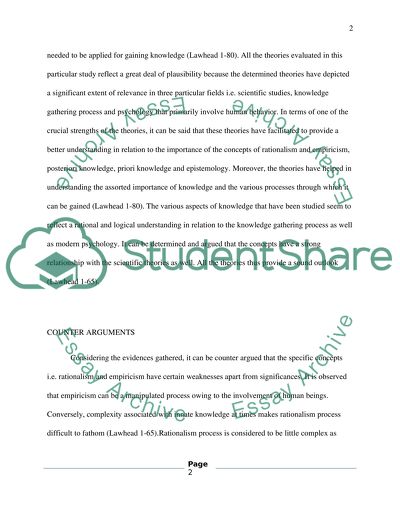Rationalism And Empiricism Essay Example | Topics and Well Written Essays - 750 words - 9. Retrieved from https://studentshare.org/philosophy/1485272-essay
Rationalism And Empiricism Essay Example | Topics and Well Written Essays - 750 Words - 9. https://studentshare.org/philosophy/1485272-essay.


